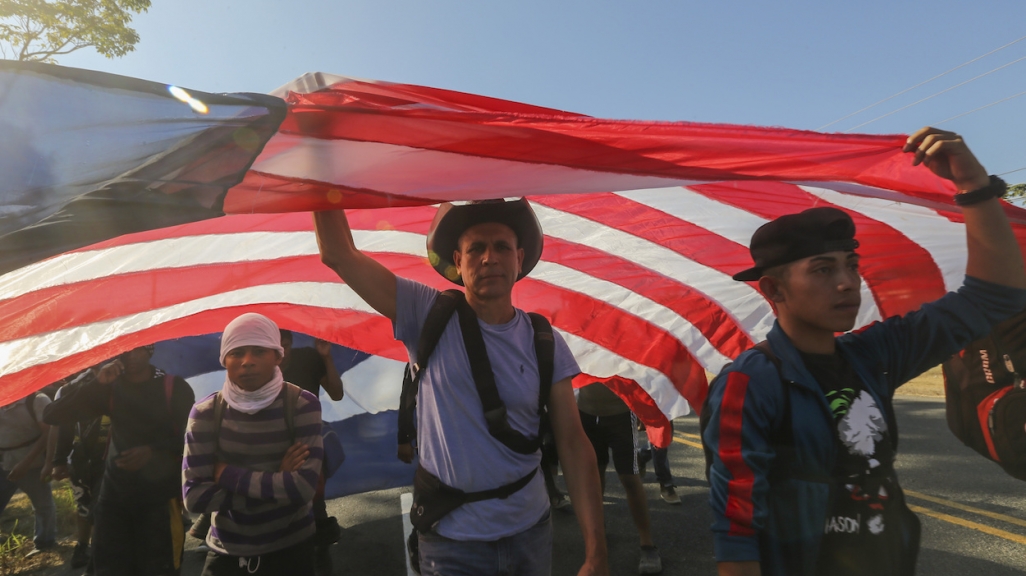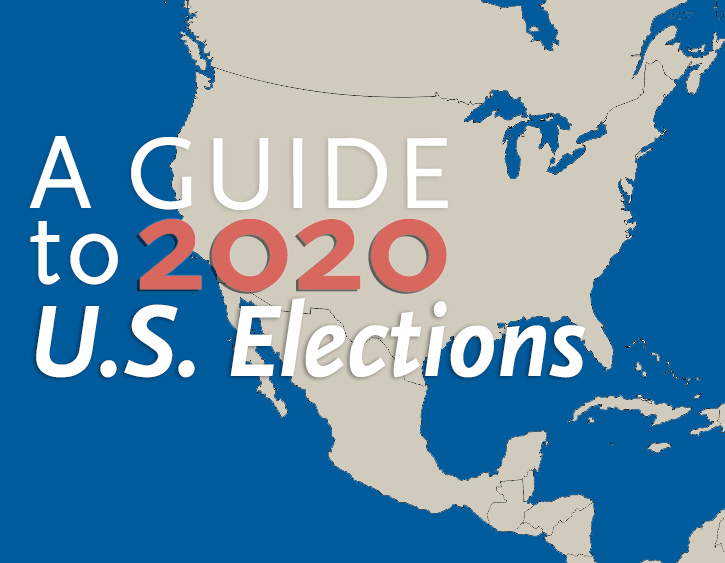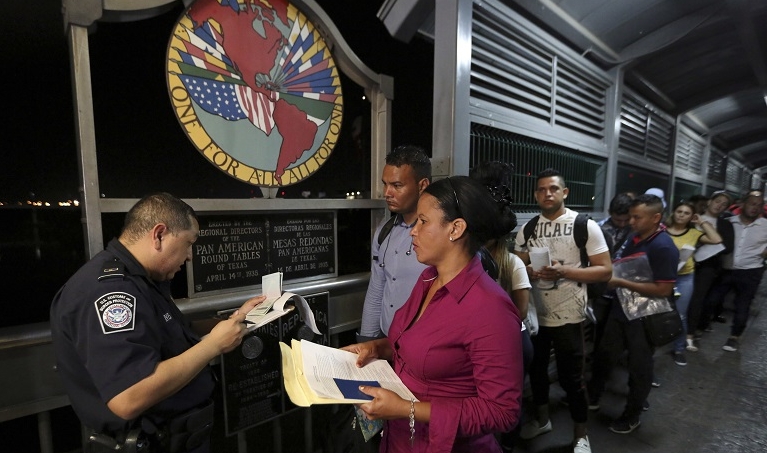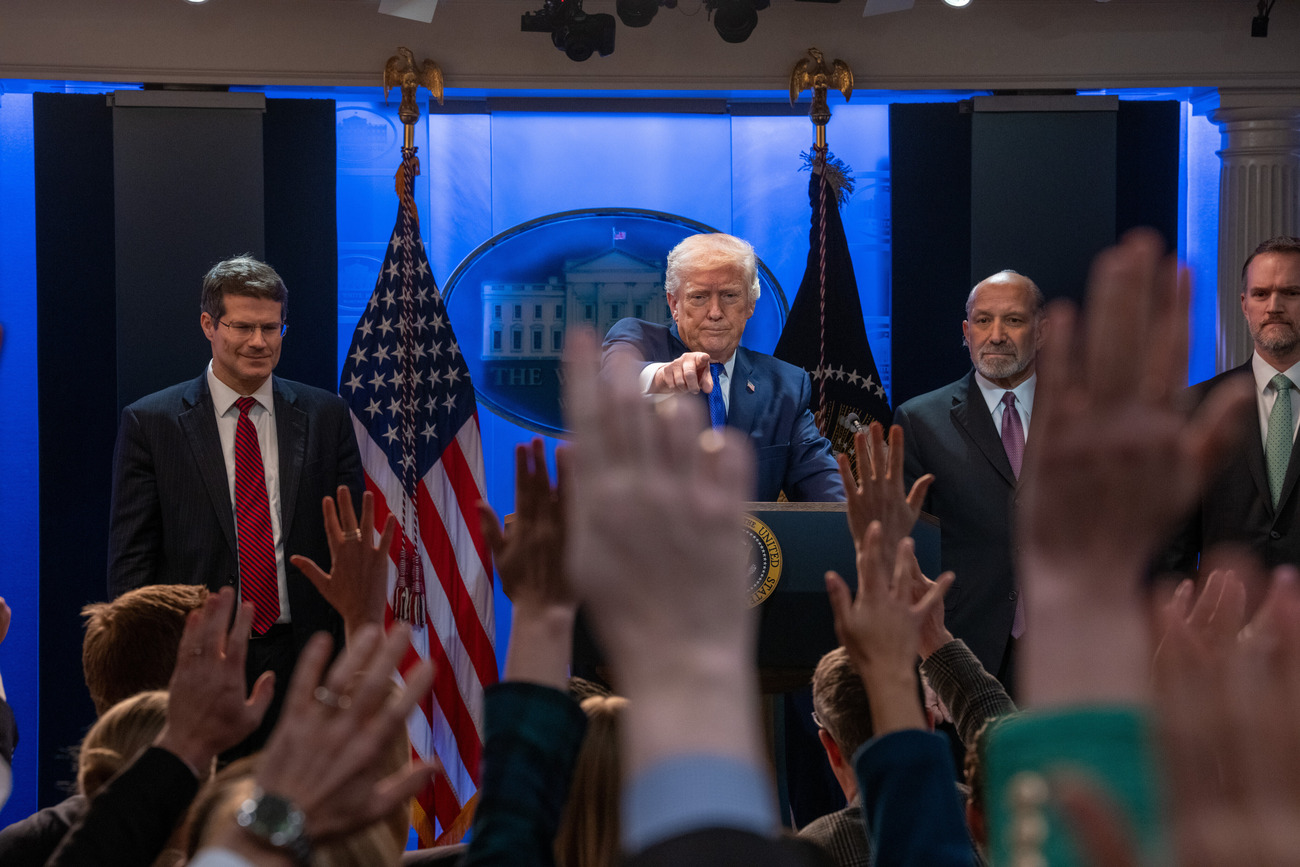U.S. 2020: Joe Biden and Donald Trump on Immigration
U.S. 2020: Joe Biden and Donald Trump on Immigration
The two candidates disagree on nearly every aspect of immigration policy.
Immigration is arguably the defining issue of the Donald Trump presidency. Although the coronavirus pandemic is the story of 2020, Trump's restrictive immigration policy preceded it and has even been a key aspect of his administration’s handling of the COVID-19 crisis.
Since taking office in 2017, Trump’s approach has entailed building a wall, stepping up efforts to criminalize border crossings, and creating hurdles to attaining visas and green cards. In mid-July, he pledged to sign an executive order to restructure the U.S. immigration system into a merit-based system “to prioritize the highest-skilled workers.”
Meanwhile, presumptive Democratic presidential nominee Joe Biden has positioned himself as the candidate to “undo Trump’s damage and reclaim America’s values” as a “nation of immigrants.” And since Bernie Sanders dropped out of the Democratic race in April, Biden joined forces to build a unity task force on immigration policy. That task force, along with five others covering issues such as criminal justice reform and the economy, laid out their policy recommendations in a 110-page document released July 8. Although the immigration task force largely endorsed Biden’s immigration plan, its members also pushed him to adopt some more progressive policies, such as abandoning the linkage between a pathway to citizenship and stricter border enforcement.
Here is where the presidential rivals stand on immigration.
Joe Biden
On the wall and border crossings
- Though Biden has spoken out against Trump’s "zero tolerance" policy and stepped-up enforcement of unauthorized border crossings, he does not support decriminalizing such crossings. The policy in place under the Trump administration, which dates back to 1929, criminalizes unauthorized border crossings, meaning entries that occur outside official entry points. Violating this law (Title 8, Section 1325 of U.S. immigration law) can result in a misdemeanor charge and up to six months in prison, while a second offense carries a felony charge.
- Instead of a wall, the former vice president wants to “invest in better technology” for the border, including cameras, sensors, large-scale X-ray machines, and fixed towers.
On deportations
- In the March 15 Democratic candidates debate, Biden said that, if elected, he would place a moratorium on all deportations in his first 100 days of his administration, after which he would only deport individuals convicted of felonies.
On paths to citizenship and protected statuses
- Biden’s platform states that he will work with Congress to create a path to citizenship for the country’s 11 million undocumented immigrants, as long as they register with authorities, are up-to-date on their taxes, and pass background checks. His platform also states that he would allow cities and counties to petition for additional visas to support economic development.
- Biden has vowed to protect the now-reinstated Deferred Action for Childhood Arrivals (DACA) program and establish a path to citizenship for recipients. He also wants to make Dreamers eligible for federal student aid as part of his higher education plan.
- He also wants to review the Temporary Protected Status (TPS) programs, which grants immigration status for limited periods to U.S.-based foreign nationals who’ve fled armed conflicts or natural disasters in their home countries. These protections usually allow for extensions. Biden’s platform states that TPS holders “who have been in the country for an extended period of time and built lives” in the United States will be offered a path to citizenship. In terms of the Americas, TPS holders include citizens from El Salvador, Haiti, Honduras, and Nicaragua. He also supports extending TPS protections to Venezuelans.
On the Northern Triangle
- Biden supports ending the so-called safe third-country agreements between the Trump administration and the Northern Triangle, which require would-be migrants to petition for asylum from El Salvador, Guatemala, or Honduras.
- Biden proposes putting a four-year, $4-billion aid package for Central America in the budget, making the aid dependent on factors such as gang and gender-based violence, improvements in education, and the implementation of anti-corruption measures.
- Biden says he will reinstate the Obama-era Central American Minors program, which granted minors from the Northern Triangle the opportunity to apply from their home countries for refugee resettlement in the United States. The Trump administration terminated the program in 2018.
On refugees and asylum seekers
- Biden would increase the U.S. annual global refugee admissions cap sevenfold to 125,000 from the 2020 fiscal year limit of 18,000. The move would put the cap above the highest Obama-era cap of 110,000.
- Biden has said he would end the Trump administration’s Migration Protection Protocols policy, commonly known as the “Remain in Mexico” program, which requires asylum seekers to wait for their U.S. court dates on Mexican soil.
Donald Trump
On the wall and border crossings
- As it was when he first ran for president, Trump’s championing of a border wall is key part of his campaign. Per his reelection website, his administration has secured funding for approximately 61 percent of the wall his government has proposed building across the U.S. southern border. Thus far, construction has finished on about 235 miles of the 450 he pledged to complete by the end of this year. Of the miles completed, only about three miles are new while the rest were preexisting barriers that have been refurbished. After Congress denied him $5 billion in extra border wall funds in December 2018, Trump declared a national emergency at the U.S.-Mexico border in February 2019 in order to secure funding for the wall, a move that has been challenged in court.
- As president, Trump stepped up efforts to enforce the legislation that criminalizes unlawful entry into the United States. Trump launched his “zero tolerance” policy in early 2018, vowing to prosecute all unlawful entries into the country––an approach that led to the separation of thousands of children from their parents. Though he later signed an executive order ending family separations at the border, such separations have continued.
On deportations
- Soon after being elected in 2016, Trump pledged to deport as many as three million undocumented immigrants with criminal records upon inauguration. That didn’t happen, and deportation numbers under the Trump administration have largely remained lower than under the Obama administration. Border apprehensions and detentions in 2019, on the other hand, peaked to the highest number in 12 years.
On paths to citizenship and protected statuses
- Trump tried to rescind DACA in 2017. Although the U.S. Supreme Court ruled on June 18, 2020 that the Trump administration’s reasoning for rescinding the program was “insufficient” and ordered for the program to be reinstated, the Trump administration has so far defied the order and is instead rejecting new applications for the program, per a July 16 report by the Los Angeles Times. Since the ruling, Trump has come out both against the Court’s decision and, on July 10, in favor of establishing a pathway to citizenship for DACA recipients as part of a larger executive order on immigration. A White House spokesperson, however, then clarified the order would “not include amnesty” for immigrants who have been undocumented, including Dreamers. In 2018, the president laid out a failed plan for a pathway to citizenship for Dreamers that would have taken 10 to 12 years to achieve and which was contingent on wall funding. Out of four immigration bills that fell apart in the Senate in 2018, Trump’s plan was opposed by every Democratic senator and did not gain enough Republican support due to its cuts to legal immigration.
- Between late 2017 and early 2018, Trump also tried to end TPS protections for Salvadorans, Nicaraguans, Hondurans, and Haitians. Per an April 2020 report by the Congressional Research Service, terminations for these four programs are on hold due to court orders. Trump passed on an opportunity in July 2019 to grant TPS to Venezuelans.
On work visas
- Trump supports restricting the number of foreign workers in the country as a way to “protect American jobs.” Amid the pandemic, the president issued an April executive order that suspended the approval of some green cards for 60 days, which he later extended through the end of year. The order affects diversity lottery visa recipients and green card holders sponsoring families for permanent U.S. residency, two systems Trump supports ending. Then, in June, Trump issued an executive order that suspended new work visas through the end of the year, including the highly coveted H-1B visa. The bans will affect an estimated 525,000 foreign workers. The Trump administration also instructed foreign students currently in the United States whose colleges will be completely remote in the fall due to the pandemic to “depart the country,” an order the president rescinded after it was challenged in court by at least 17 states. Before COVID-19, Trump supported slashing legal immigration by up to 65 percent.
On the Northern Triangle
- Between July and September of last year, Trump signed bilateral agreements akin to safe third-country deals with El Salvador, Guatemala, and Honduras. Since then, deportation flights carrying asylum seekers have arrived in Guatemala and Honduras.
- During his first term, Trump has exchanged U.S. aid for immigration cooperation. After forging the agreements with Northern Triangle countries, Trump released $450 million in U.S. foreign aid to the three countries. The aid was previously frozen when he said the countries hadn’t done enough to halt migration north. In June, per the Los Angeles Times, the Trump administration approved $500 million in U.S. aid for the Northern Triangle through the end of fiscal year 2019 and for fiscal year 2020. The certification to receive aid came despite State Department warnings that the countries hadn't successfully curbed corruption and violence as is required to receive U.S. aid.
On refugees and asylum seekers
- In September 2019, Trump slashed the country’s annual refugee cap to 18,000 from his prior reduced limit of 30,000 in fiscal year 2019. The current cap will be in effect until September of this year.
- Though the Trump administration’s “Remain in Mexico” policy has been challenged in court more than once, the policy still stands since the U.S. Supreme Court backed it in March after an appeals court filed an injunction against it. Since its inception in January 2019, roughly 60,000 asylum seekers have been sent to Mexico––where they often fall victim to violence and human trafficking––while they wait for an asylum hearing in U.S. courts.
This article was originally published July 16, 2020 and has since been updated.










